|
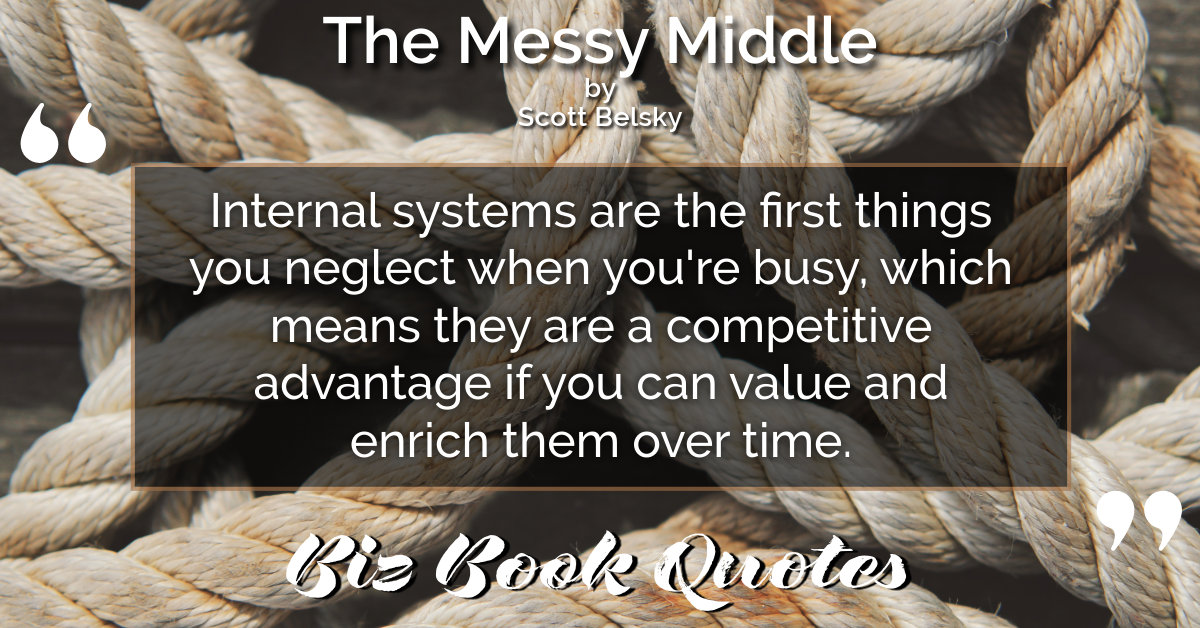
|
The Messy Middle:
Internal systems are the first things you neglect when you’re busy, which means they are a competitive advantage if you can value and enrich them over time.
|
145 |
|

|
The Messy Middle:
Without truthful attribution, the forces driving performance in a team become apathetic and ultimately resentful.
|
147 |
|

|
The Messy Middle:
While you may think assigning credit is about rewards, it’s really about assigning influence for future decisions.
|
148 |
|

|
The Messy Middle:
The willingness to break your own rules and keep structure permeable to circumstances is as important as the rules themselves.
|
152 |
|
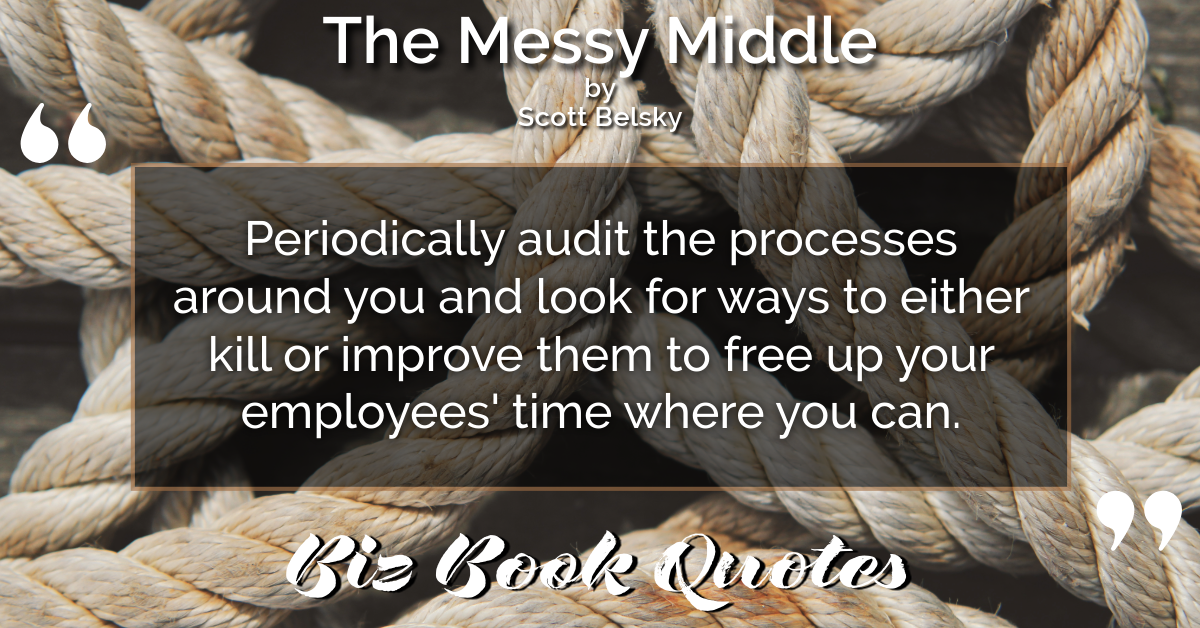
|
The Messy Middle:
Periodically audit the processes around you and look for ways to either kill or improve them to free up your employees’ time where you can.
|
155 |
|
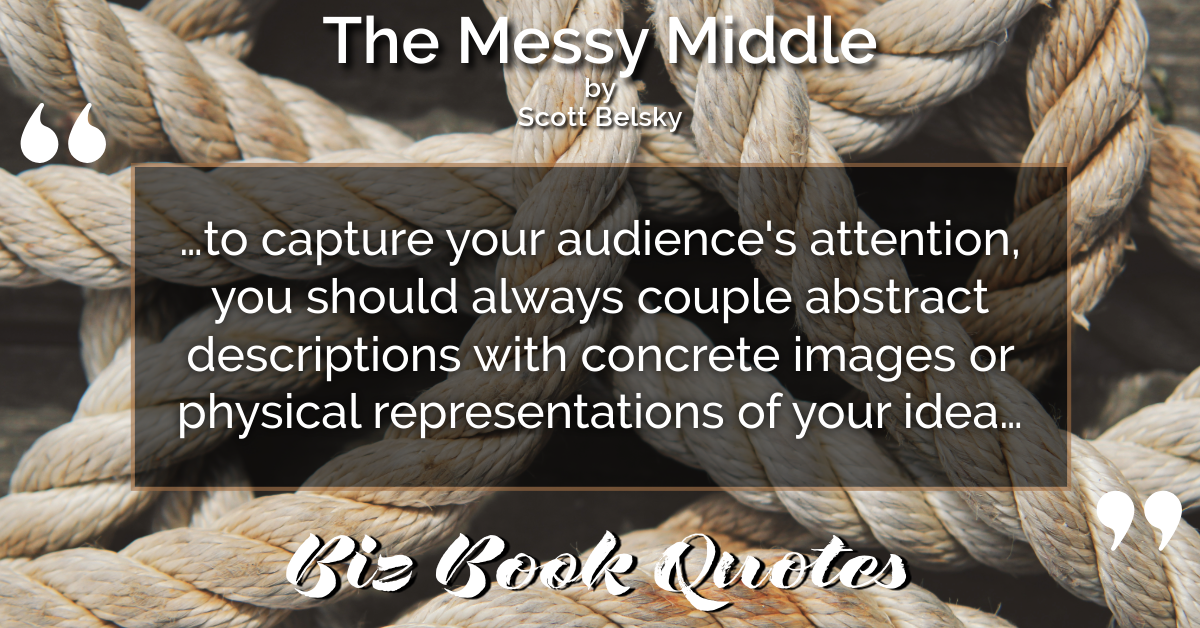
|
The Messy Middle:
…to capture your audience’s attention, you should always couple abstract descriptions with concrete images or physical representations of your idea…
|
162 |
|

|
The Messy Middle:
When people know where their small part fits in the whole, they recognize how indispensable their work is. They feel more accountable.
|
168 |
|
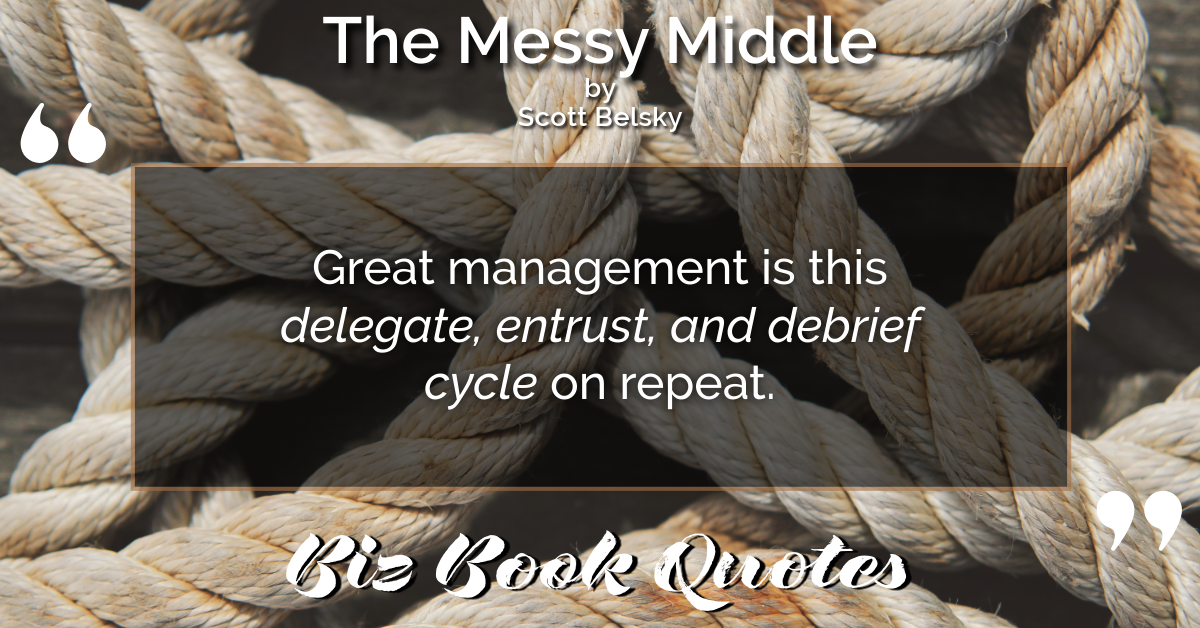
|
The Messy Middle:
Great management is this delegate, entrust, and debrief cycle on repeat.
|
169 |
|
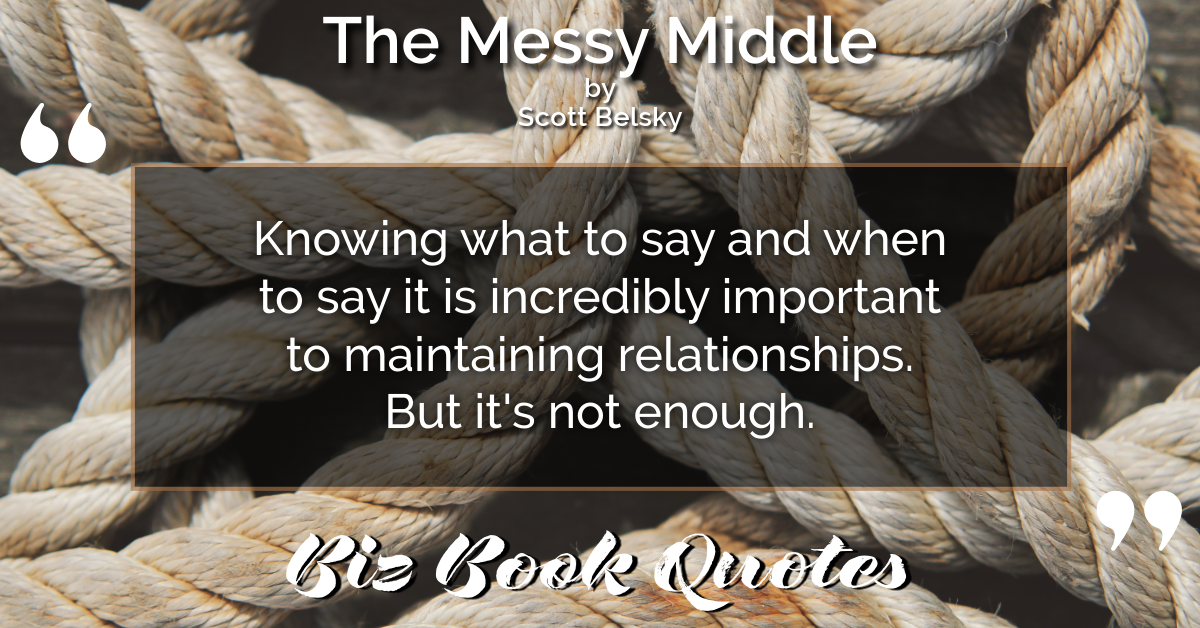
|
The Messy Middle:
Knowing what to say and when to say it is incredibly important to maintaining relationships. But it’s not enough.
|
170 |
|
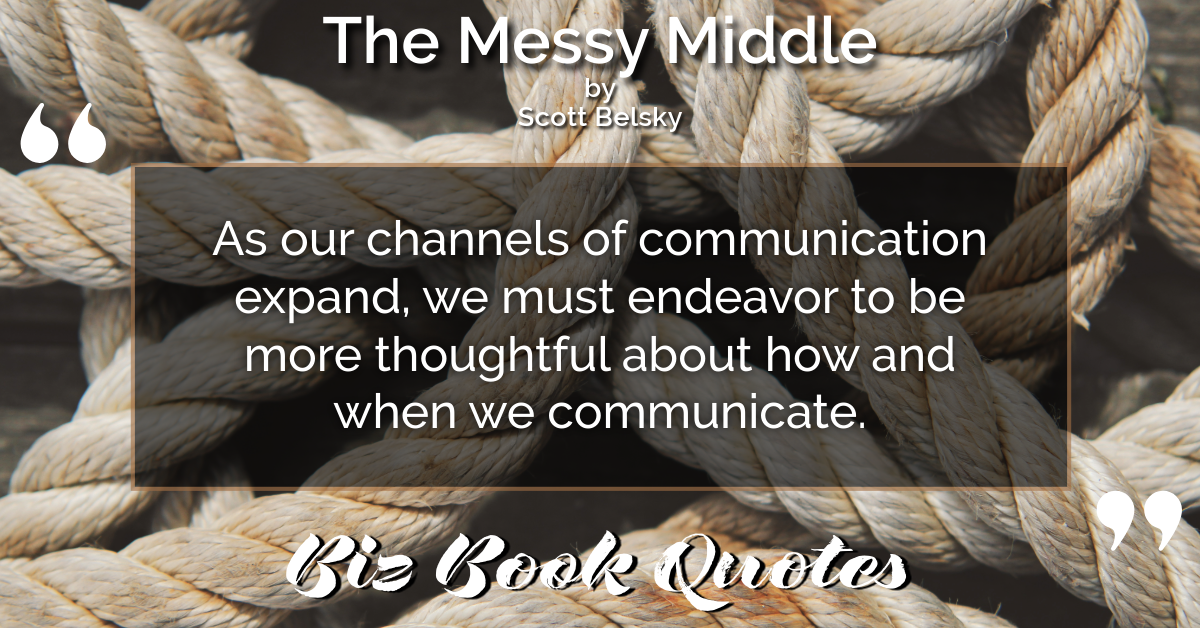
|
The Messy Middle:
As our channels of communication expand, we must endeavor to be more thoughtful about how and when we communicate.
|
172 |











